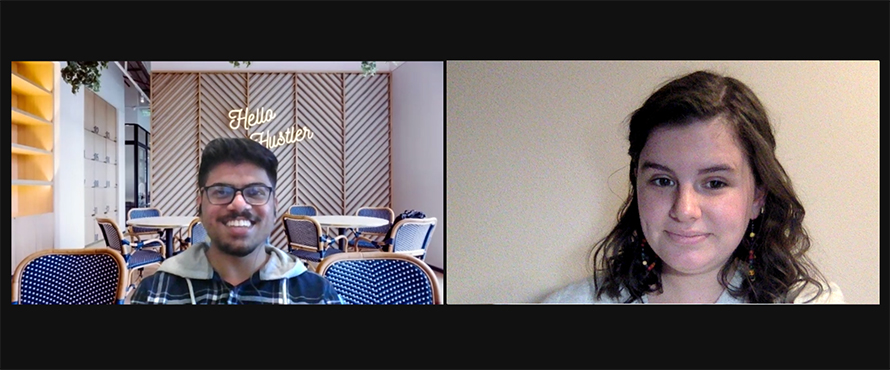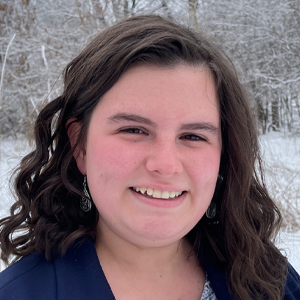Sharing know-how with Project SHORT
I didn't have enough money to go through the Ph.D. application more than once, so I set out to make my one-and-only application as competitive as I could. I spent many hours watching YouTube videos about the graduate admission process, reading blogs, listening to podcasts and asking questions on social media until I felt versed enough in the process to begin preparing my application. I learned about attending Ph.D. admission seminars, emailing professors and reaching out to current graduate students. It was a hands-on process and very time-consuming, so I did not want all my newfound knowledge to fall by the wayside once I began my Ph.D. journey.
Looking for ways to share my know-how with future graduate school applicants, I discovered Project SHORT, an organization founded in 2019 by Hannah Loo, a Ph.D. student at the University of Pennsylvania. The name stands for Student Health Opportunities and Research Training, and the program matches prospective graduate students with a mentor (often in their field) who provides free, high-quality consulting to help navigate the application process. Mentees also get assistance with program selection, feedback on personal statements and mock interviews. As of December, the graduate school arm of Project SHORT had 374 mentors serving 378 mentees.
As a Project SHORT mentor, I have been able to partner with future graduate students at various stages in the application process to help them confirm that graduate school is the right choice for them and work with them to become strong candidates for admission.

My first mentee is in his second year as an undergraduate and already eager to prepare himself for a chemistry graduate program. Because he won't graduate for a couple of years, we worked together to craft an email to a potential research advisor, asking about opportunities to gain undergraduate research experience, which will allow him to be a more competitive applicant for graduate programs. I told him about the National Science Foundation's Research Experience for Undergraduates, an alternative path to doing research at a university he was interested in for his Ph.D. We also worked together to find conferences where he could present his work, such as the Society for Advancement of Chicanos/Hispanics and Native Americans in Science, better known as SACNAS.
Another mentee of mine balances being a single mother, working and attending school. I was a first-generation college student who worked full-time through much of my undergraduate education, so I could relate to her situation. We worked together to craft her personal statements in a way that highlights how professional experiences can be beneficial in a graduate school program. When the COVID-19 pandemic disrupted her undergraduate research, we sought out computational and virtual research opportunities to compensate for the loss of in-person research she was counting on for her graduate school application. I now am working with her to revise her personal statements as well as locate and apply for fee waivers.
Project SHORT's services provide my mentees with a contact who can answer questions readily, minimizing the often intimidating task of consulting with professors on the application process. I believe these relationships are helping students who otherwise might have been provided with little information about admissions to be better prepared to gain admission to grad school.
Undergraduate students interested in being mentored by Project SHORT and graduate students, postdocs and others interested in becoming mentors can find information and applications at project-short.com.
(Marya S. Sabir and Hannah K. Loo assisted with critical revision of this article.)
Enjoy reading ASBMB Today?
Become a member to receive the print edition four times a year and the digital edition monthly.
Learn moreGet the latest from ASBMB Today
Enter your email address, and we’ll send you a weekly email with recent articles, interviews and more.
Latest in Opinions
Opinions highlights or most popular articles

Women’s health cannot leave rare diseases behind
A physician living with lymphangioleiomyomatosis and a basic scientist explain why patient-driven, trial-ready research is essential to turning momentum into meaningful progress.

Making my spicy brain work for me
Researcher Reid Blanchett reflects on her journey navigating mental health struggles through graduate school. She found a new path in bioinformatics, proving that science can be flexible, forgiving and full of second chances.

The tortoise wins: How slowing down saved my Ph.D.
Graduate student Amy Bounds reflects on how slowing down in the lab not only improved her relationship with work but also made her a more productive scientist.

How pediatric cataracts shaped my scientific journey
Undergraduate student Grace Jones shares how she transformed her childhood cataract diagnosis into a scientific purpose. She explores how biochemistry can bring a clearer vision to others, and how personal history can shape discovery.

Debugging my code and teaching with ChatGPT
AI tools like ChatGPT have changed the way an assistant professor teaches and does research. But, he asserts that real growth still comes from struggle, and educators must help students use AI wisely — as scaffolds, not shortcuts.

AI in the lab: The power of smarter questions
An assistant professor discusses AI's evolution from a buzzword to a trusted research partner. It helps streamline reviews, troubleshoot code, save time and spark ideas, but its success relies on combining AI with expertise and critical thinking.

